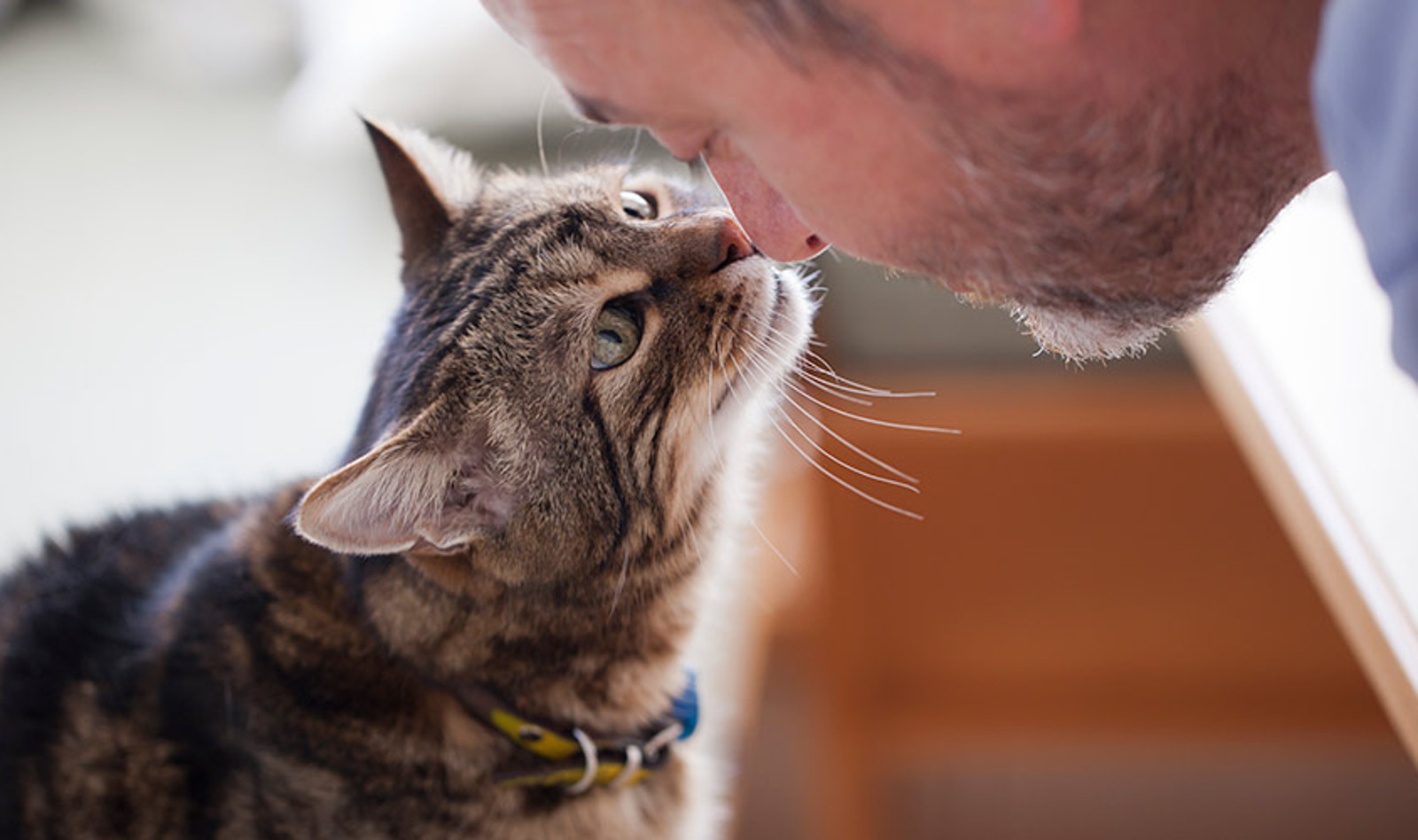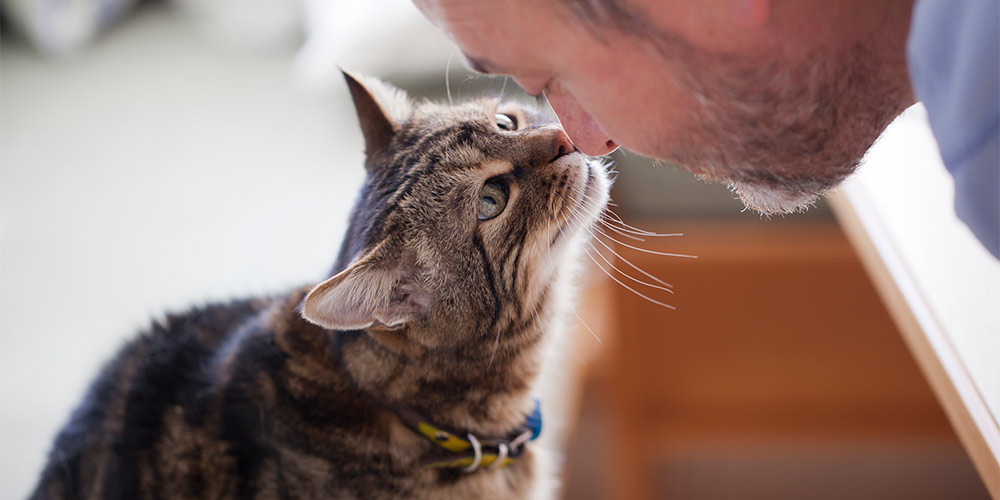
As anyone who shares their home with one of these “big personalities” of the animal world will
tell you, our feline family members might be small in stature but they’re enormous at heart! Here’s your handy guide to making sure your cat or kitten is a healthy and happy member of society.Finding Your Cat or Kitten

- If you’re ready to welcome a furry friend into your life, the kindest choice is to adopt, not shop. There are thousands of gorgeous kittens and cats of all types waiting for a home in shelters and pounds across Australia. A rescue group will be able to match you with the perfect cat for your unique set of circumstances.
- Like all companion animals, a cat is a lifelong commitment. Cats live on average for 13-15 years, but up to 20 isn’t uncommon. If you’re not quite ready to take this leap, you could consider becoming a foster parent and help save multiple lives!
- It’s important to be able to spend some quality time with your cat each day — despite an unfair reputation for aloofness, many cats thrive through human interaction.
Keeping Your Cat Healthy

- Your cat needs access to plenty of fresh water, adequate nutritious food and a clean litter tray.
- Cats also require an annual vet check, flea and worm prevention and an appropriate vaccination schedule.
- It’s crucial to spay/neuter your cat to prevent any unwanted litters of kittens. Hundreds of thousands of cats are euthanized every year in Australia because of accidental (or not-so-accidental) over-breeding. Talk to your vet, but usually kittens can be safely desexed from 8 weeks of age.
- Cats generally love to groom themselves — however long-haired cats need a bit of extra help with regular brushing to remove excess fur.
- Pet insurance might be useful if you’re concerned about unexpected vet costs through your cat’s lifetime. Check with your vet and do some research to decide if it’s right for you and your kitty.
- One of the most common health issues seen by vets in cats is being overweight. It’s very easy to overfeed a cat, especially because they love to convince you to do so! Ask your vet for advice and keep an eye on their waistline.
Identifying Your Cat

- Make sure your cat is microchipped — responsible shelters and rescue groups will do this before rehoming an animal. Most importantly, keep the registered details up to date so you can be contacted if your feline friend goes missing. And a collar with your phone number on a nametag is a quick and simple safeguard.
- Additionally, many councils require you to register your cat –- simply give your local council a call to check, or visit their website.
Keeping Your Cat Safe

- Cats who are allowed to roam outside are at risk of getting hit by a car, fighting with other cats, contracting diseases or even becoming trapped in sheds or garages. Keeping them indoors, especially at night, will help protect your cat — as well as keep native wildlife safe.
- Indoor life can suit cats perfectly — simply make sure they have enrichment such as toys, hiding spots and a scratching post. For the icing on the cake: some greenery, a spot in the window to sunbake or even a cat climbing gym are often a hit!
- There are also some fantastic enclosure systems for your backyard that allow your cat to be outside while keeping them and local wildlife safe.
- You’ll need to make sure your cat is cared for when you go away. Friends and family, or a professional cat sitter who can come to your home, are usually the most stress-free options for you and your cat. Kennels and catteries also often provide a great service, but it’s important to check in person that you’re comfortable with the premises and how they operate, as well as any fees.
- If you have kids, it can be helpful to teach them about cat body language and how to gently handle or pat your cat, so that both cat and kids stay safe and happy.
- Cats are naturally curious, so to protect them from potentially harmful chemicals and dangerous household appliances it’s a good idea to make sure that washing machines, dishwashers, fridges and cupboards are kept closed so cats can’t climb in and become trapped.
The Best Cat is a Happy Cat

- Like people, cats are individuals, and have different preferences and personalities. Some cats love being the centre of attention and enjoy plenty of interaction, and many others prefer a more peaceful home-life. That’s one of the great advantages of adopting a cat, especially from foster care, as you’ll know what kind of environment will help your furry friend flourish.
- Introducing a new cat or kitten to existing animal family members is a sensitive moment. Using screen doors or even baby gates to allow sniffing without contact, ensuring dogs are on a lead and that cats have somewhere to retreat — preferably up high — and taking things slowly and gently will give the best chance of a harmonious household.
Enjoy Your Purrrr-fect Companion!
Welcoming a cat into your life can be a hugely rewarding experience, bringing joy, friendship — and even improved health. If you can convince your kitty to do tricks, even better!
All image source: Animals Australia


No comments:
Post a Comment